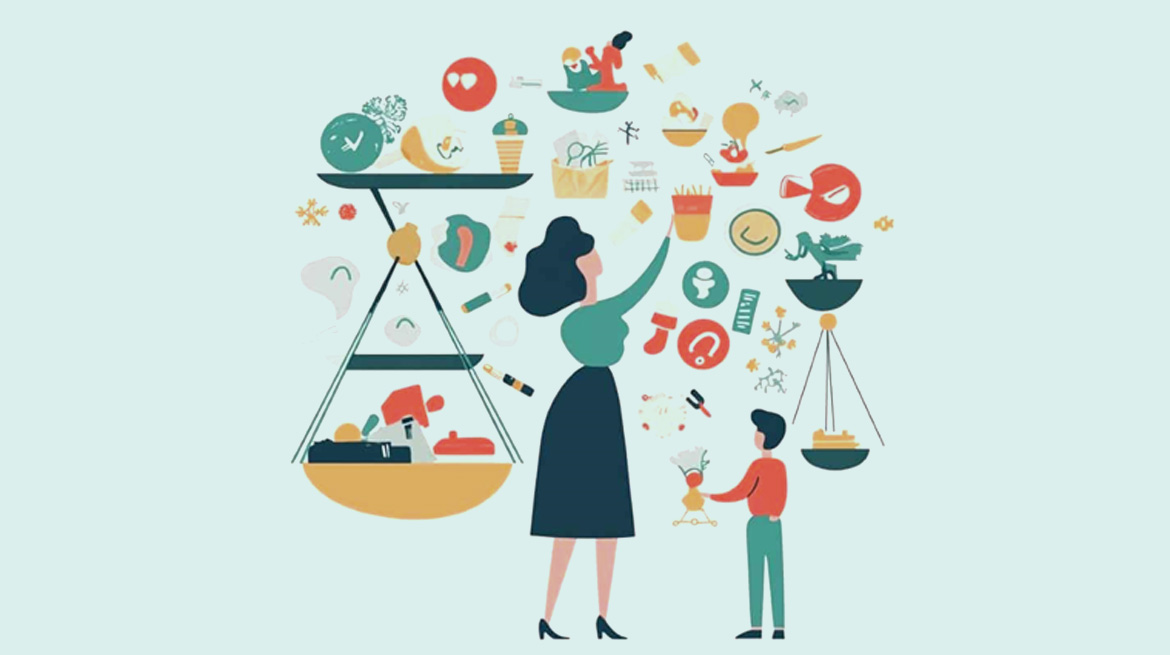Motherhood is a transformative journey, and with each child, the experience deepens. While second pregnancy brings familiarity, it also introduces new emotional and mental challenges. While many mothers aspire to return to work, the reality of postpartum recovery, childcare responsibilities, and emotional challenges often create barriers. The struggle is not just about logistics—it’s an emotional battle filled with self-doubt, societal expectations, and maternal guilt.
The Psychological Impact of a Second Pregnancy
Unlike the first pregnancy, where everything feels new and uncertain, the second pregnancy comes with clarity and added responsibilities like caring for an older child while preparing for a newborn. The postpartum period can be physically demanding and mentally exhausting, often exacerbated by sleep deprivation and hormonal fluctuations. And of this is experienced by a doctor who once was fully dedicated to work and community, its even more tedious to experience. It is witnessed by increased stress from managing two children and the social pressure to quickly “bounce back” to normal life.
The Weight of Wanting to Work but Staying Back
A second child reshapes everything—routines, priorities, and the very sense of self a mother once knew. As a doctor dedicated to community medicine, her identity has always been deeply connected to serving others—long hours in clinics, outreach programs, and the responsibility of improving public health. But now, the weight of staying back presses heavily on her shoulders. The bustling community clinics, the familiar faces of patients who once relied on her, and the satisfaction of making a difference in underserved areas all feel like a distant memory. She misses the routine—morning visits to rural health centres, immunization drives, and the sense of purpose that came with advocating for better healthcare access. Yet, as she watches her own children grow, she is torn. The same care and compassion she poured into her patients now belong to her family. The mother in her wants to be present, while the doctor in her aches to return to the field, where her work once shaped lives beyond her own.
She wonders if the rest of the world have moved ahead, while she lingers in a phase of paused ambition. Yet, every thought of returning is met with hesitation.
- Who will care for the baby while she travels long distances for immunization drives and public health programs?
- What if her older child needs her at school while she’s engaged in a critical community meeting or conducting fieldwork?
- Will she have the energy to be fully present at home after long days spent addressing healthcare disparities and advocating for better medical access?
The Guilt of Choosing Family Over Career
The professional world feels like a distant place—a past life left behind. The once-clear career path now seems blurred by diapers, school schedules, and the endless demands of motherhood. Each day at home feels like a missed opportunity, a step further away from who she once was. And yet, the thought of leaving the little one behind stings.
- “Am I being selfish for wanting more?”
- “Will I regret missing these early years?”
- “Will my skills still matter when I finally return?”
Guilt creeps in from both sides—one for longing to step back into work, the other for fearing she won’t be there enough for her children.
The Loss of Identity & the Fear of Falling Behind
Before motherhood, she was more than “Mom”—a professional with goals and achievements. Now, success is measured in nap schedules and school drop-offs. She longs for intellectual challenge but hesitates, torn between ambition and fleeting childhood moments. Fear creeps in. When she returns, will she still belong, or must she start over, proving herself again?
The Emotional Struggles of Returning to Work
Going back to work after a break is never easy, that too after a second child, the challenges multiply. Juggling two kids and a career brings exhaustion, anxiety, and intense guilt. Mothers struggle with leaving the baby, balancing attention between children, and meeting work demands while drained. Workplace expectations, limited maternity benefits, and societal norms add pressure, undervaluing their emotional labour. The challenge isn’t just resuming a career—it’s navigating an unforgiving system while striving to be present for both work and family. The weight of mom guilt is a Silent, relentless struggle. It is a silent weight, questioning every choice. It stems from the impossible expectation to give everything to both kids and career, never missing a moment. It creeps in with each goodbye kiss, lingers at her desk, and grows as she scrolls social media, seeing mothers who seem to balance it all. And she wonders—why can’t I?
Embracing Imperfection: A Mother’s Unseen Strength
Mom guilt may never fully disappear, but perhaps it isn’t about choosing between work and family—it’s about accepting that love exists in both places. It’s about accepting that love is not measured in hours but in presence. A mother’s worth isn’t defined by how perfectly they juggle both worlds, but by the love, effort, and intention they pour into them. Every mother, who yearns for career well-being, needs to embrace imperfection and redefine success—not as doing it all, but as doing their best. By prioritizing mental health and setting realistic expectations, working moms usually reclaim confidence and thrive in both their personal and professional roles. Motherhood is not about perfection; it’s about love, resilience, and self-acceptance. As a working mother, she is not failing—she is showing her children what it means to be passionate, resilient, and human. And perhaps, that’s more than enough.





Wonderful wrteup
Good article
Great perspective about the 2nd pregnancy
Awareness about the struggle of mom between the career and family
This should go over all the people make every mom not to fall or stayback
Author makes the MOM
Singapen